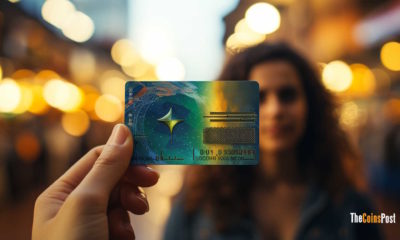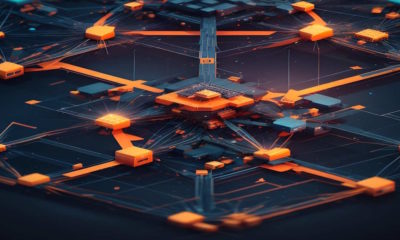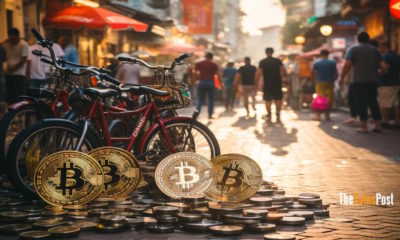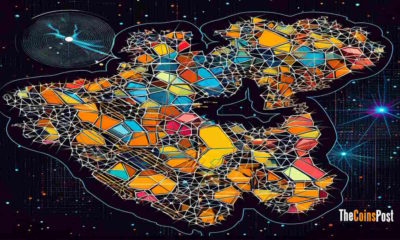Blockchain
Unlocking the Potential: Iraq’s Journey Towards Blockchain Legislation
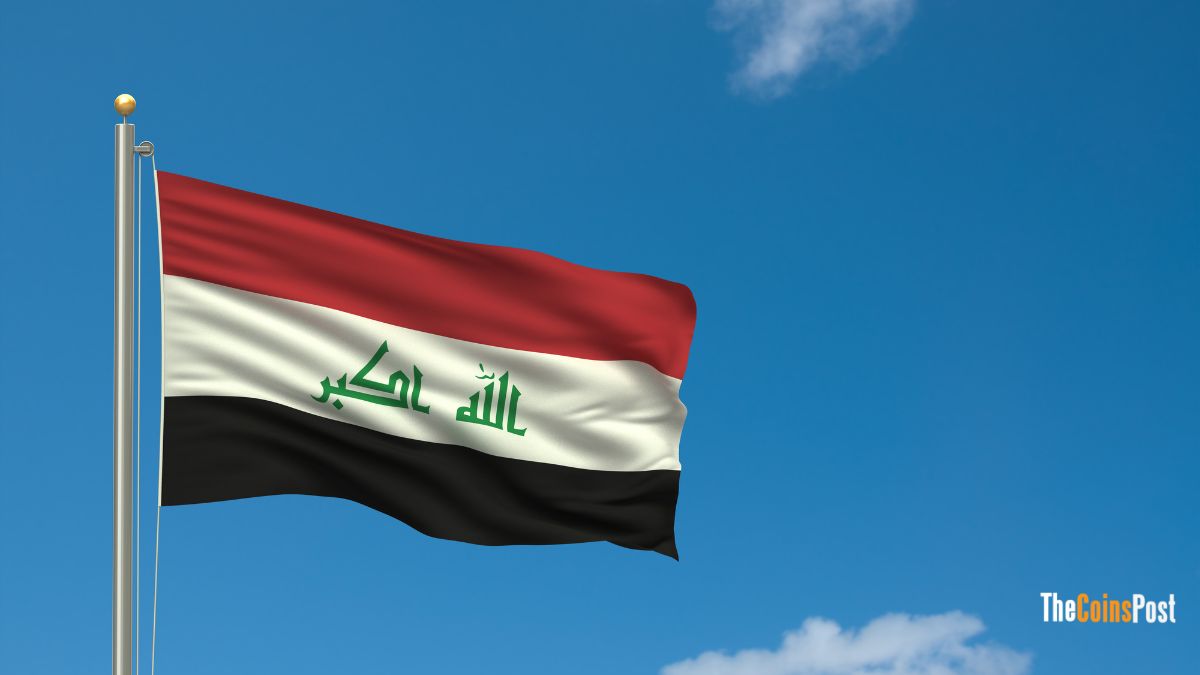
Amidst ongoing political and economic instability, Iraq is witnessing a growing interest in harnessing the power of blockchain technology as a catalyst for social change and innovation. As a decentralized and transparent ledger system, blockchain offers promising solutions for a range of applications, including cryptocurrencies, smart contracts, digital identity, and supply chain management.
However, the adoption of blockchain in Iraq faces significant hurdles, both technical and legal. Challenges on the technical front include frequent power outages, limited internet penetration, and inadequate infrastructure, hindering widespread access and usability of blockchain platforms. On the legal side, Iraq lacks a comprehensive regulatory framework for blockchain and cryptocurrencies, leading to uncertainties and risks for users and developers.
According to a recent Deloitte report, Iraq ranks among the countries with the lowest level of blockchain readiness in the Middle East, primarily due to weak institutions, limited innovation capacity, and high political risk. The report emphasizes the need for regulators, including central banks, to embrace cryptocurrencies and work towards developing a suitable regulatory environment that minimizes risks while maximizing opportunities.
With a GDP per capita of $4,452 in 2020, placing it 133rd among 190 countries, Iraq also struggles with financial inclusion, as only 23% of adults hold accounts with financial institutions or mobile money service providers. Blockchain adoption and regulation in the country are still in their early stages.
At present, Iraq lacks specific legislation or authority governing the use of blockchain or cryptocurrencies. The Central Bank of Iraq (CBI) has not provided official guidance on their legal status or treatment, merely cautioning the public about associated risks such as volatility, fraud, money laundering, and terrorism financing.
Nonetheless, efforts are underway to promote blockchain awareness and education in Iraq. The Iraqi Blockchain Society, for instance, organizes events, workshops, and hackathons to introduce blockchain concepts and use cases to the public. Some notable blockchain projects have also emerged, including ZainCash, a mobile wallet utilizing blockchain technology for secure money transfers, and Taqanu, a digital identity platform aimed at providing banking services to refugees and displaced individuals.
However, these initiatives encounter various obstacles, such as censorship, hacking, and violence. During the protests in 2019 and 2020, activists turned to blockchain platforms like Ethereum and Steemit to document human rights violations, only to face cyberattacks allegedly orchestrated by pro-government forces with external support.
The potential of blockchain to improve Iraq’s social and economic conditions is evident, but it requires a supportive and enabling environment to flourish. This necessitates collaboration and dialogue among the government, civil society, private sector, and international partners to develop a legal framework that recognizes and regulates blockchain technology transparently and fairly. Investments in infrastructure, education, and security are also crucial to ensure accessible, reliable, and secure blockchain platforms for all users.
Iraq must prioritize the development of clear and comprehensive legislation on blockchain to address challenges and risks while promoting the growth and adoption of this transformative technology. Such legislation should define the legal status of blockchain and digital assets, establish rights and obligations of users and regulators, provide guidelines for security, privacy, and compliance, and create incentives and support mechanisms for innovation and education.
By embracing blockchain and enacting appropriate legislation, Iraq has the potential to harness the transformative power of this technology, enhancing its economic, social, and political landscape and positioning itself as a regional leader in the blockchain revolution.
Blockchain
Fireblocks buys Australian blockchain start-up BlockFold
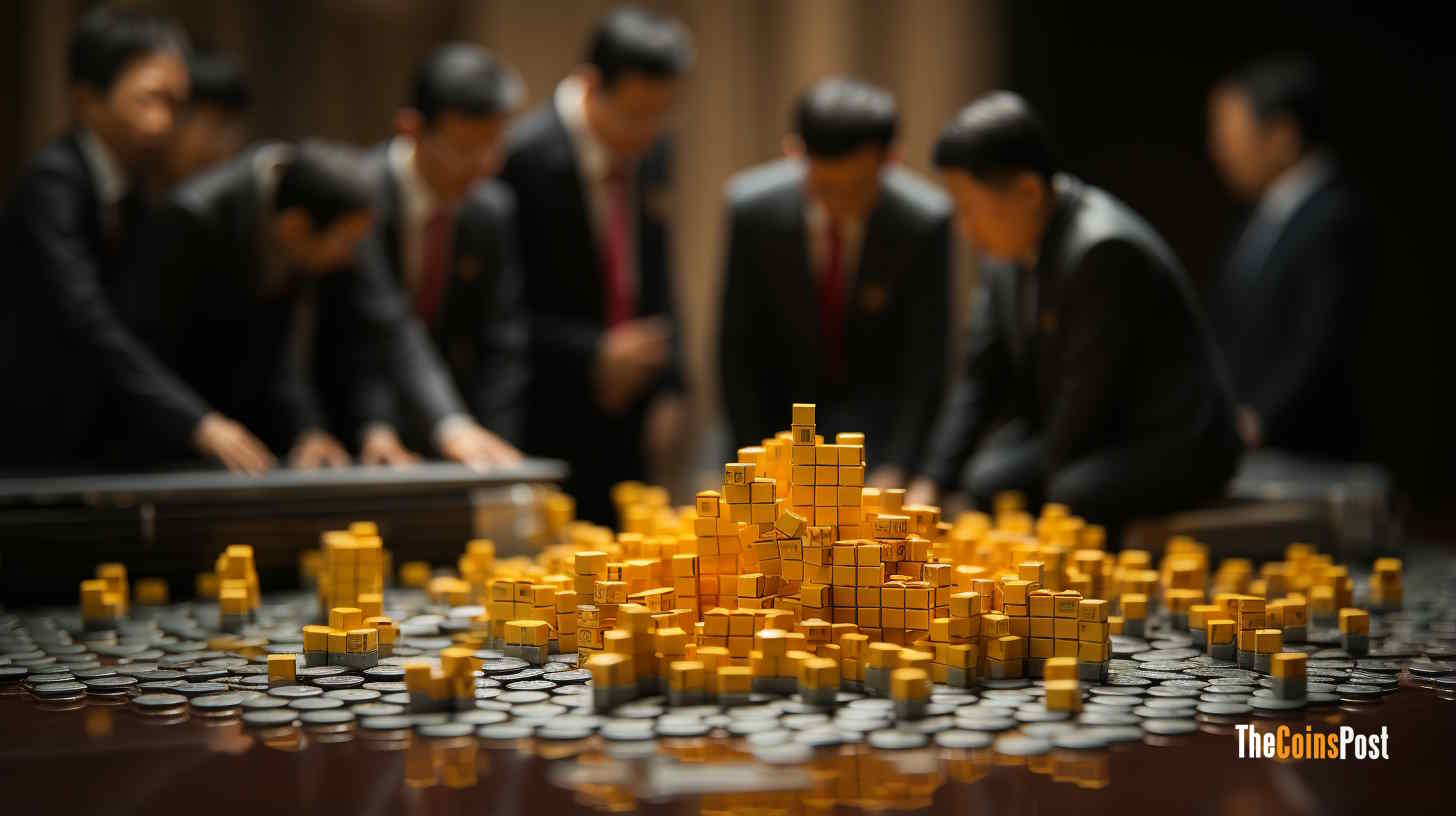
Fireblocks, the crypto company backed by Sequoia Capital and Coatue Management, has acquired BlockFold, a Melbourne-based start-up that helps financial institutions build blockchain-based systems.
As per Bloomberg , Fireblocks paid about $US10 million ($15.6 million) for BlockFold. While Fireblocks already works with large financial institutions, including Bank of New York Mellon, BNP Paribas and the Tel Aviv Stock Exchange, it has predominantly offered them services around custody technology.
New York-based Fireblocks is one of crypto’s most well-funded start-ups, having raised some $US1.2 billion so far. The company, which employs around 650 people in the US and Israel, was valued at $US8 billion in its latest financing round in January 2022.
The deal comes as large Wall Street firms ramp up efforts to issue and trade traditional financial assets like bonds and private-equity investments over blockchain networks, seeking to simplify processes and cut costs.
Founded in 2021, BlockFold specialises in tokenisation and smart-contract development for clients such as large financial institutions. Fireblocks and BlockFold have already worked together on projects including National Australia Bank’s recent cross-border stablecoin transfer.
Blockchain
Brazil Enhances National Identity Card Security with Blockchain Technology
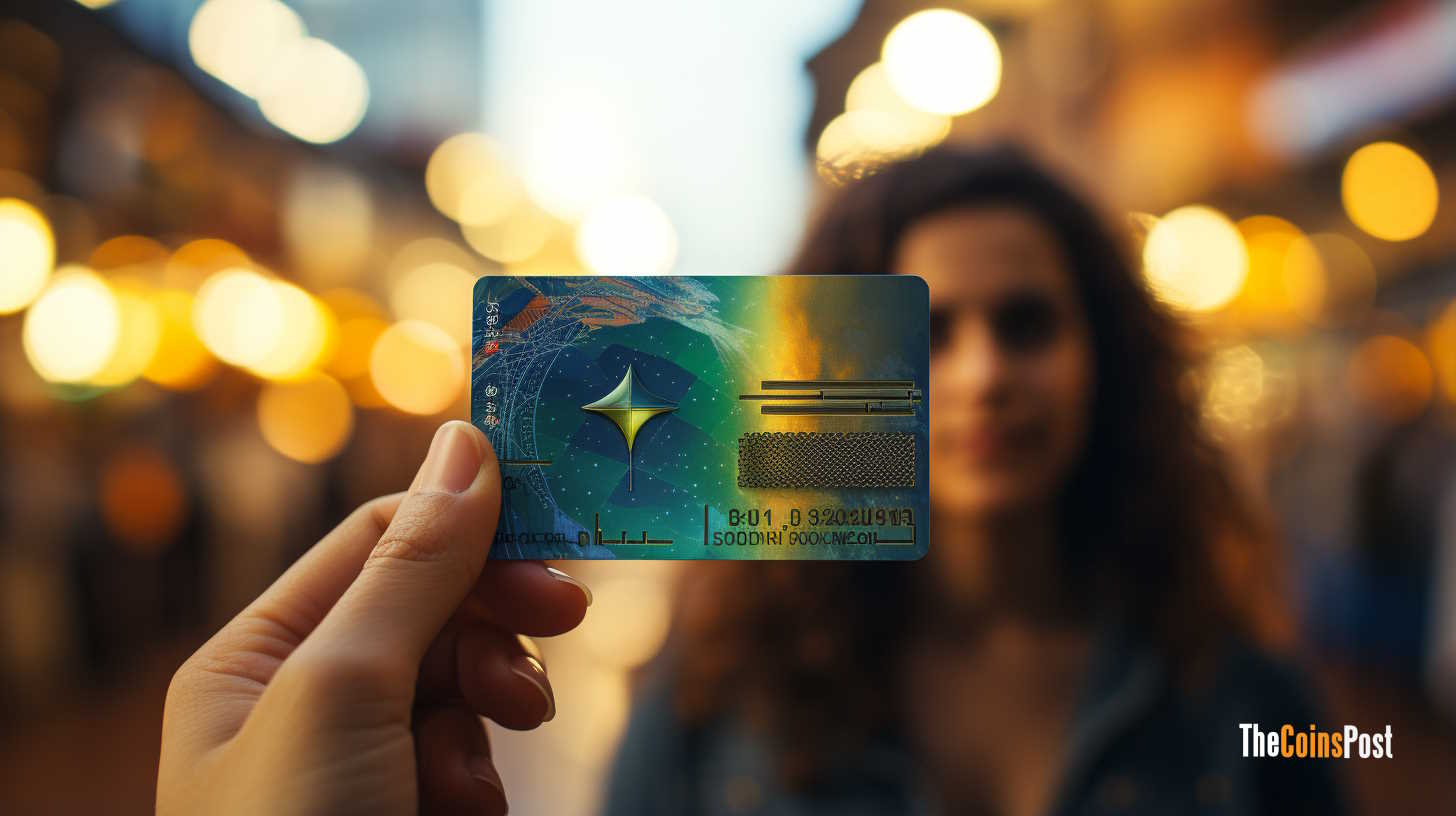
In a significant stride toward modernization, Brazil is rolling out a novel national identity card system, fortified by the integration of a blockchain network. This innovative approach is set to bolster the security of data sharing between the Federal Revenue Service and civil identification authorities.
The cornerstone of this system is the shared registry known as b-Cadastros, designed to underpin the operations of the revenue service. This comprehensive platform facilitates searches, issuance, and modifications of the new ID cards and tax registration numbers. Notably, the platform’s development was orchestrated by Serpro, Brazil’s state-owned IT services corporation.
Serpro’s President, Alexandre Amorim, emphasized the pivotal role of the b-Cadastros blockchain platform in fortifying the National Identity Card project. “The use of the b-Cadastros blockchain platform is a major differentiator for the security and reliability of the National Identity Card project,” he stated.
The National Civil Identity Card (ICN) represents an upgraded iteration of Brazil’s traditional paper-based ID cards, and the nationwide issuance commenced in July 2022. The overarching goal of this project is to centralize the nation’s civil identification system and harness the ICN database to authenticate individuals accessing online public services.
The modern plastic card boasts an innovative feature: it empowers users to generate a single digital version of their identity document. This advancement enhances security, as it allows for validation through a printed QR code. In adopting blockchain technology for the ID cards, the Brazilian government anticipates streamlining processes and curbing fraud and illegal activities. Presently, individuals can request identification cards in all of Brazil’s 27 states, which presents challenges in terms of data integrity and security.
Serpro’s Amorim elaborated on the significance of blockchain technology in safeguarding personal data and thwarting fraudulent activities, thus delivering a more secure digital experience for Brazilian citizens.
The states of Rio de Janeiro, Goiás, and Paraná are set to pioneer the blockchain-based version of the national revenue service’s shared registry for the issuance of the new ID cards this week. The remaining states are poised to follow suit over the next six weeks, marking a significant step forward in enhancing the security and efficiency of Brazil’s identity verification and taxation systems.
Source: Forbes
Blockchain
Horizen’s $ZEN Holders Take the Helm with the DAO Launch

The Horizen community, get ready to embark on a revolutionary journey in governance as the Horizen DAO steps into the spotlight, as per Horizen’s new announcement.
Horizen, a public, open-source blockchain protocol, boasts a thriving ecosystem composed of developers, miners, node operators, and holders of $ZEN tokens across various blockchain networks. The introduction of the Horizen DAO paves the way for increased community involvement in decision-making and offers a platform for your voices to shape the project’s path.
Discovering the Horizen DAO
DAO, which stands for “Decentralized Autonomous Organization,” has emerged as the gold standard for decentralized governance in the blockchain world and beyond, as per Horizen’s new announcement.
Horizen has always been driven by its community, acknowledging the critical role of a strong social layer in upholding integrity throughout the ecosystem, as stated in Horizen’s new announcement. This ethos is guided by principles such as transparency, accountability, security, community engagement, continuous improvement, and social responsibility. Dive deeper into Horizen’s guiding principles on the Horizen governance page.
Stages of Proposals and Voting
The Horizen DAO takes decentralization of decision-making to new heights, encompassing both technical and non-technical aspects, along with other substantial system enhancements, as outlined in Horizen’s new announcement.
Protocol Improvement Proposals (IPs) are a well-established mechanism for selecting and implementing fresh features and fundamental protocol adjustments in numerous blockchain projects, as per Horizen’s new announcement. In Horizen’s case, these IPs are the cornerstone of the Horizen DAO’s community-driven governance. For Horizen’s primary chain and the EON sidechain, we respectively refer to these as ZenIPs and EONIPs, and they are the lifeblood of our governance process.
Ultimately, it’s the $ZEN token holders who wield the power to steer the future of Horizen, shaping the network’s evolution through active participation in the Horizen DAO, as per Horizen’s new announcement. Any holder of $ZEN can cast their vote on proposed improvements, while those with the requisite amount of $ZEN, either held or delegated, can propose changes to the community. To ensure effective community governance, users will also have the option to delegate their voting authority to individuals they trust as capable stewards of Horizen’s core values.
For a comprehensive understanding of the Horizen DAO, including its proposal phases, voting procedures, Constitution, and more, we invite you to explore the Horizen Governance page. Join us on this exciting journey to help mold the future of Horizen – we’re delighted to have you on board, as announced by Horizen.
-

 Altcoins5 years ago
Altcoins5 years agoProject Review: Pi Network, a New Scam Project in Town
-

 Bitcoin4 years ago
Bitcoin4 years agoBitcoin Worth $1.2M Seized From Arrested Indian Hacker
-

 Altcoins6 years ago
Altcoins6 years agoReview: Play Arcade Games Inside ARK Wallet And Win Some Free Cryptocurrency
-

 Blockchain6 years ago
Blockchain6 years agoA Full Review: Utopia A New Decentralized P2P Blockchain
-

 Bitcoin6 years ago
Bitcoin6 years agoAnother Exit Scam: NovaChain Shuts Down
-

 Exchanges5 years ago
Exchanges5 years agoCrex24 Will Require KYC Verification
-

 Bitcoin6 years ago
Bitcoin6 years agoJohn McAfee Has Gone Missing
-
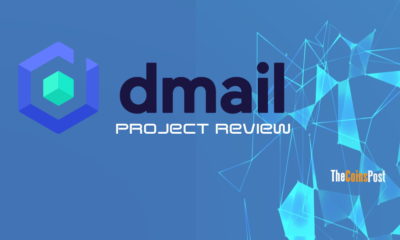
 Blockchain5 years ago
Blockchain5 years agoProject Review: Dmail Decentralized Blockchain Email


